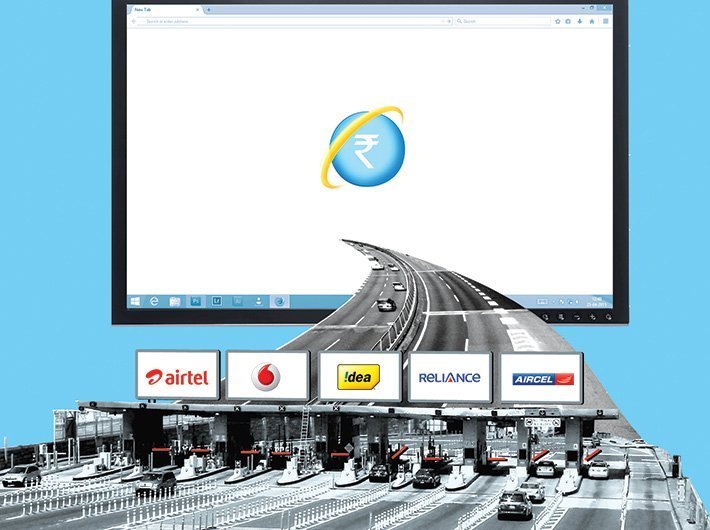The telecom regulatory authority of India (TRAI) on Tuesday came out with its recommendations on net neutrality. It has proposed strong measures to restrain the telecom service providers (TSPs) from getting into any arrangement with over the top (OTT) players -- the internet services companies – to disallow discrimination in internet access based on content, protocols in use or equipments.
By ‘discriminatory treatment’, the TRAI means any form of discrimination, restriction or interference in treatment of content, including practices like blocking, degrading, slowing down, or granting preferential speeds or treatment to any content.
Read: Will India win net neutrality battle?
The TRAI has provided for exemption for certain “specialised services”. These services will be identified by the department of telecommunications (DoT), said TRAI.
The TRAI states that the internet access service providers can resort to “reasonable measurements” for traffic management, provided the same are proportionate, transient and transparent. It mandates TSPs to disclose their traffic management practices. The TSPs would also be required to disclose their “specialised services”, direct or indirect arrangements made by them.
The recommendations on net neutrality are an outcome of a pre consultation paper released by the regulator on May 30, 2016, and a detailed consultation paper on January 4, 2017.
It is important to note here that the telecom regulator had
released regulations on “prohibition on discriminatory tariffs for data services regulations 2016” on February 8, 2016. A month later, the DoT sought TRAI’s detailed view on traffic management, economic, security and privacy aspects of the OTT services, apart from issues flagged by another paper released on March 27, 2015.
The Internet Association of India (IAMAI) has said that the new recommendations are progressive and are in line with the debates in the industry and user groups that have been raging since the last two years.
“For the industry, the recommendations are pragmatic in the sense that it recognises the requirements of expansion of digital services in the country; when it makes reasonable exceptions for specialised services, reasonable traffic management practices or fulfilling international treaty agreements. Special provisions for IoT, specialised services and CDNs reflect a forward looking recommendation that takes into account the needs of the foreseeable future,” the IAMAI said in a statement.
The TRAI provisions are also conducive for nurturing the startup ecosystem in the country, the industry body said. “By preventing larger content companies stonewalling emerging services by colluding with ISPs, the TRAI recommendations ensures level playing field in access enabling emerging service providers to reach out to target audiences at same terms with their peers,” the IAMAI said.
According to IAMAI, “By bringing all possible agencies of the ecosystem under the ambit of net neutrality with special provisioning that prevents collusive pricing of services (or bundled services), TRAI has ensured that customers are not coerced into walled gardens setup with collusions between different agencies of the digital ecosystem.”
“Therefore, internet in India, unlike possibly in the US or China, is going to be ‘free and open’ upholding the democratic principles of our country. However, the government needs to act with speed on these recommendations. The TRAI position on differential pricing had a sunset clause of two years which is fast coming to an end. These recommendations should be adopted at the earliest, or else all the above mentioned benefits will be lost,” the industry body added.
For the telecom service providers association, COAI (Cellular Operators Association of India), the recommendations are disappointing.
In a statement, COAI DG Rajan S Mathews said, “We are… disappointed that the authority did not adopt the industry recommendation to have a wider approach to net neutrality, where issues of OTT players, definition of NN to include issues around connecting the next one billion unconnected users, national development priorities, etc., were not considered.”
“Inclusion of IoT remains a huge concern, and we will need to look closely at this. A committee to review and decide on network management violations is unnecessarily bureaucratic, and not in keeping with light touch regulation or the ease of doing business. The DoT is already well positioned to investigate any violation of license conditions and it already has all the necessary enforcement mechanisms in place, hence such a heavy handed approach is not necessary, as is, now being proposed by the TRAI,” Mathews said.
“Moreover at a time, when globally, countries are adopting a more market oriented, and market driven approach to NN in order to not stifle development, innovation, proliferation and growth of the internet, we believe TRAI should have adopted a light touch approach to NN,” he added.


